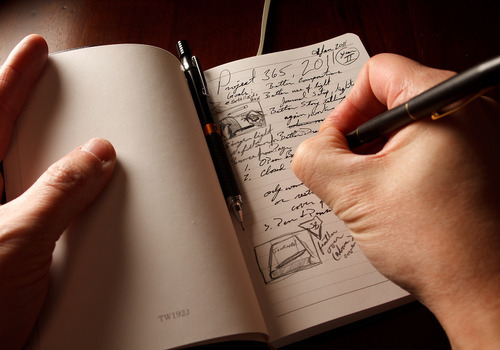NaNo Prep: Four Questions to Ask Yourself When Writing Diverse Characters

We’ve officially entered NaNo Prep season, and this week
we’ve asked some participants for their thoughts about building strong characters.
Today, Municipal Liaison Aurora Hurd shares some tips on how to responsibly create diverse characters:
So, you want to write a novel and you want it to represent the world around you. This inevitably means writing about characters who may not be like you in their identity and/or background. Below is a list of questions to keep in mind while creating characters different from yourself:
1. Are you using stereotypes without meaning to?Sometimes it is obvious if you are slipping into a stereotype, sometimes it is not. The best way to avoid stereotypes is to write well rounded characters. If you know your character’s greatest goal, their greatest weakness, what makes them happy and sad, it is harder, if not impossible, to write stereotypes. But if you are still not sure if you are falling into a problematic trope, research is your friend. There is a lot of writing on what to watch out for when it comes to stereotypes big and small (for example, on the long history of writing villains as gay or gender-nonconforming—equating such traits to being evil). Use your favorite search engine to check and use the tips from the other posts this week to build complex characters.
2. Ask yourself, would you want someone of the background/identity you are writing about to read your book?If the answer is no, then you have a huge red flag that a lot of work needs to be done. First, make a list of why that is. Then, it is time to hit the books (or the internet) and it is time to talk to people. Ask people in the community you are writing about what they would like to see in characters. Ask them what they do not want to see. Then go back to your writing.
3. Have you read books by authors of this identity?If not, now is a wonderful time! Not only does this support other authors, and authors that are often overlooked by bigger publishing companies, but it is also research, as all reading is. Reading diversely helps in writing diversely. Here are some good places to start: http://readdiversebooks.com/ and http://weneeddiversebooks.org/.
4. Finally, ask yourself why are you writing this character this way?This may be the hardest one to answer, because it may take some digging into yourself. If your answer is that this is just who the character is, you have answered all the above questions, and you have done your research, you are on track. But be careful of falling into roles like that of the white savior. Having good representation is powerful, but having people of a majority identity write about minority characters dealing with racism, homophobia, or ableism is not. This is because not only will it not come off as authentic, there is a high probability of getting things wrong. This is not to say only ‘write what you know,’ but to ‘stay in your lane’ and ‘do your homework.’
I want to finish this by thanking you for writing diverse characters! It is more important than ever for books to represent the world and the people within it. Representation matters, it builds understanding and acceptance which help dismantle systems of oppression when done right. Keep these questions in mind and get ready to write this November!

Aurora Hurd is a bisexual writer of all things in the realms of the fantastic. She is an ML for USA :: Vermont, and is currently seeking her MFA in Creative Writing. For more writing, visit Aurora on Twitter and Tumblr.
Top image licensed under Creative Commons by Edward Peters on Flickr.
Chris Baty's Blog
- Chris Baty's profile
- 62 followers



